

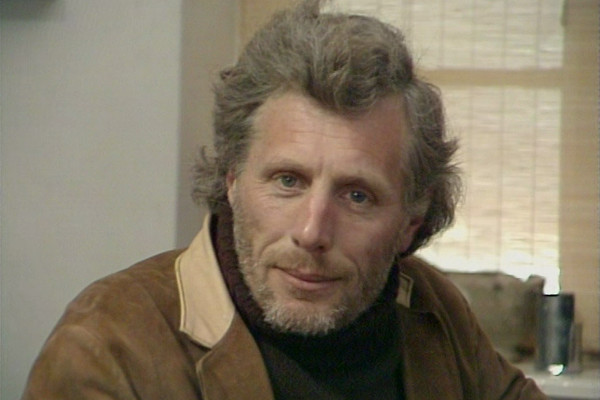
An intriguing yet oddly left-field episode that acts as a reverse of series one's Law and Order. There an innocent man of low class and intelligence is sentenced to death by his middle class peers... here an educated, well-spoken man who committed a murder is given a chance.
Partly this is the shadow of Law and Order, as Greg admits he has no intention to "go through a murder trial again". Yet the decision is universal, despite the nature of the crime. The murder was historical, and committed a year earlier under a period of insanity, but as it involved the murder of a child it's hard to accept that the entire group would be so accepting.
While John Line does good work as Alistair, the attempts to repeat a "moral quandary" aren't as successful, as the entire situation doesn't quite ring true. Even when one of the children goes missing after last being seen with Alistair, Greg still decides to give him a chance. Their ready acceptance of mental health issues (in an age where specialist teas were still an unheard-of novelty) seems too much of a stretch considering what we've previously known about the group.
Even the reactions don't seem quite consistent. Jenny, while admittedly under strain all episode, goes from fearing for the life of her young baby to ruing Alistair deciding to leave, all within the space of a few hours. Collectively the group decide they'd rather live with a man who had killed a child in his past, rather than Hubert, a complainer with bad hygiene.
There's almost a warning to viewers refusing to accept the "grey areas" of this one, as Greg slates Hubert with "it's all too simple to someone like Hubert". It effectively tries to shame any of the audience who might have trouble seeing the "nuance" of such a plot, but when said nuance involves the group accepting a child murderer, no matter what the circumstances, it's an incredibly unlikely stretch of credulity.
Even worse, Greg making the decision to let him go free while a child is still missing is almost inexplicable. The acceptance of Alistair is met without conflict or vote... it's difficult to imagine a similar outcome if Abby was still part of the group. And, when all is said and done, it makes you wonder if Barney would still be alive if he knew more about poetry, or could sit at a kitchen table delivering a pretty speech...
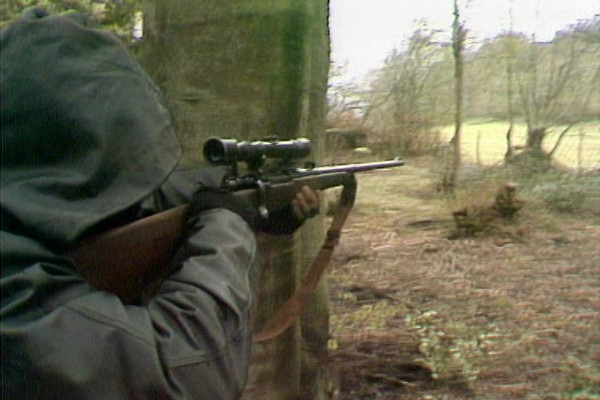
A Friend In Need ranks highly simply because the ones that are listed beneath it are so poor; if this were placed in series one it's unlikely it would have made the top ten. Ian McCulloch, who wrote it, was critical of the way it turned out, suggesting that the director gave away so much that the suspense is gone.
It's a fair point, though at the heart of a muddled entry is a pretty good episode. Sadly, all that's good about it is submerged, so that various plot elements - including other settlements, the joining of communities, and an elderly man with an 18-year-old wife - are all left unresolved in favour of a typical assassin story. It's very much a Nationesque "nuts and bolts" story, though McCulloch does commendably write Greg at his most pig-headed and unlikeable.
The real missing element to the story is the nature of why? Throughout the runtime a sniper shooting only women is menacing the communities, but her motivation is never disclosed. In fact, we never even see that she's a woman (probably because the part was played by a man) and so such narrative twists are explained by John, while the other characters only get to see the "poor lady"'s face offscreen. That this is a revelatory twist is of some surprise in itself - it doesn't really change a thing, and means nothing to the group, unless they're just more squeamish about killing women - and so a messy episode concludes with the nagging feeling that it needed two or three more drafts.
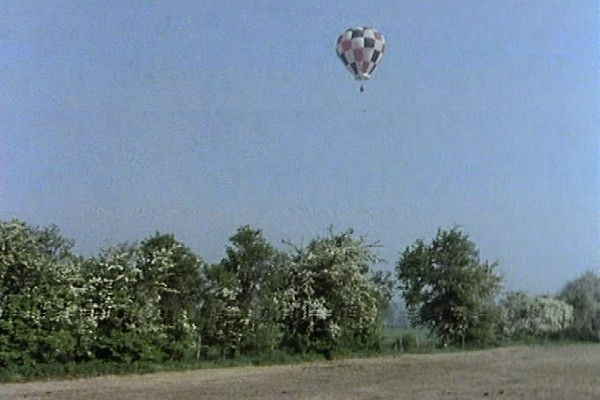
Martin Wigglesworth, under his professional name of Martin Worth, had written for television since the 1950s, including creating 1971's Trial. Having worked on Doomwatch, he crafted three episodes for this run (By Bread Alone, Over The Hills and this episode) and became essentially the head writer for the final year, delivering more series three scripts than anyone else, including the series finale. Worth admits that he was brought in to make the series more about self-suffiency, to deliberately move away from Nation's original post-apocalyptic vision.
There are conflicts in accounts of what went on behind the scenes, from Worth stating that McCulloch was written out because he couldn't get along with Denis Lill, to Stephen Tate (new character Alan) saying that it was a very happy working environment. However, a PA stated that McCulloch had begun counting how many lines he'd get in each script, and John Abineri said he would avoid socialising with the actors as it got very fractious and he wanted to avoid the conflicts.
One thing of note is that a location again became unavailable after the series concluded; a real-life community were living in the area, and were paid by the BBC to stay out of their homes and live in caravans while filming took place. Unfortunately the psychological toll caused the community to break up, ironically echoing the themes in this episode.
Here the knowledge of there being more of a technological civilisation in Norway causes the group to split up so that some of them can find it. However, as a traveller from Norway (via Sussex) seems to know a lot more about the state of England than any of the group do, it does make you wonder what they've been doing over the last 18+ months.
There's quite a lot to discuss here in term of characters, as a finale once again marks the last we see of several regulars: Ruth, Alan, Mel, Sally and Pete all take their final bow here, whereas we're apparently supposed to have forgotten that Mina and Daniella even existed. Then there's small bits of trivia, like John Abineri (Hubert) and Gordon Salkilld (Jack) both appearing - albeit not together - in the same Red Dwarf episode, Better Than Life.
Yet in all, series two is something of a disappointment, with a large number of the actors involved, including Celia Gregory (Ruth), expressing that no matter how pleasant the atmosphere was, the scripts were below-par. New World does at least seem to give the series a direction it had spend the year discarding...
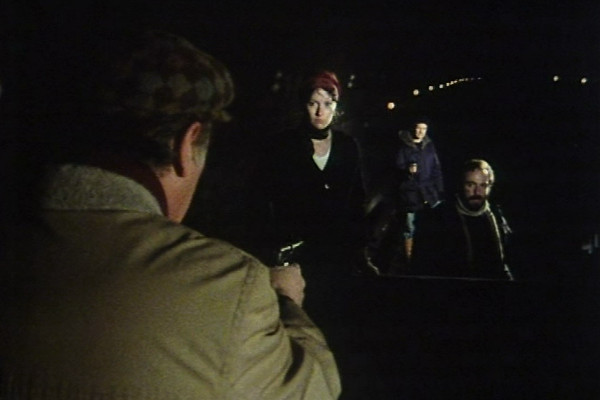
Survivors' only two-part story acts as the real showcase for the second series, featuring a return to film for some truly impressive shots of a deserted London underground. Ruth is coerced into joining a colony of 500 people, the sole surviving residents of London. Plot logic and motivations don't always add up, and naturally it doesn't quite work out, but this is engaging stuff. Perhaps the real sore point is that it was broadcast early in the run, as episodes 3 and 4, whereas the series may have benefitted from it being run later, to cut into the flagging that occurs during the midway point of 1976's offering.
While the series opens up with talk of winter then spring, many of the episodes go by without any real sense of time and could be placed anywhere in the run. The sense of missing continuity is alluded to here, as a poster on the underground can briefly be seen advertising an event due to take place on a Sunday, August 5th. Now, leaving aside the possibility the poster wasn't replaced, August 5th fell on a Sunday in 1973, and wouldn't do again until 1979. Does this mean that the first series of Survivors was set in 1973? Or does it just mean that the production team probably didn't take these things as seriously as an anorak with a pause button?
Lastly, all three series of Survivors had one or two commentary tracks when they were originally released onto DVD. Sadly, these commentaries weren't included when the series was later released as a complete boxset, meaning that they haven't been heard to process these articles. While it's a nagging omission for a self-confessed anorak, the cost was prohibitive, with each individual series actually costing more than the complete series boxset. If you wish to hear Denis Lill and Pennant Roberts commentate on the second episode of this story, then you can still buy the second series DVD from Amazon. If, like me, you're unfortunately not made of money and can live without commentaries, then the same site sells the complete series boxset for a cheaper price.
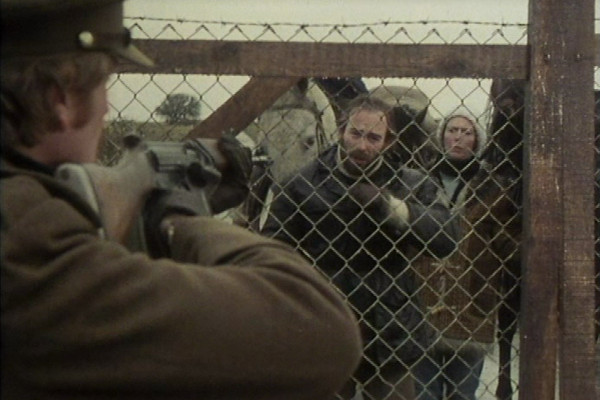
An episode that starts with a situation already in progress, as Charles and Pet are far from the commune, exploring a new place on horseback. The idea of starting an episode without telling the viewer what's going on may be a bad thing in other series, but given that the regular status of Survivors episodes at this point was Greg making methane gas and Hubert minding the sheep, the change of pace, and scenery, can only be a good thing.
Eventually they get involved with a new settlement, a group of extremists who believe in a master race... starting with Roy Cropper from Coronation Street. It's a bit overlaboured (and the quoting of the show's title in the final moments is an absolute stinker) but it's an episode that keeps you wondering what's going to happen next. It's evocative, too. The notion of gang rapes and a baby being eaten alive by rats are all explored just by dialogue alone.
Charles and Pet are the only regulars to appear in the episode, and Ian McCulloch admitted that, while he got on fine with Denis Lill, he did feel that his role as the "alpha male" of Survivors was somewhat being undermined, with Lill getting some good storylines and roles that would previously have gone to him. McCulloch's rather staid depiction of Greg was also referred to by Chris Tranchell, who said that, while he and McCulloch got on fine, his attempts to develop more of an onscreen relationship between Greg and Paul were not met with agreement. Accordingly, the rather limited role of Paul and the lack of philosophical scripts led to Tranchell making his own decision to leave.
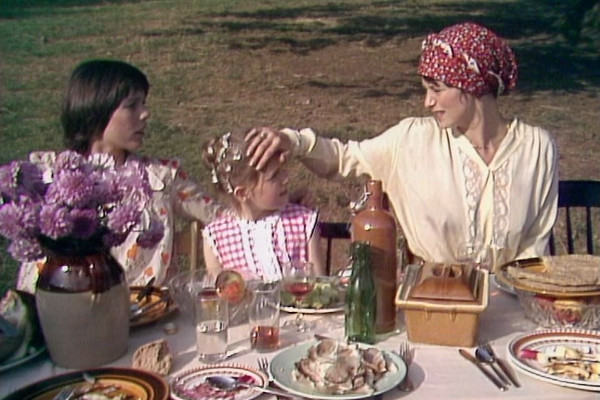
Over The Hills captures a now-defunct moral quandary for the Survivors: birth outside marriage. At the time it was still a taboo, with 91.8% of babies being born in wedlock. Not for nothing could The Supremes cut a record like "Love Child" just eight years prior. However, in a 2020 where the ratio is almost 50-50, it renders this subtext of the episode as a quaint snapshot of yesteryear. This shift in attitudes also extends towards one character talking about another as having had a "gay life" without it being a reference to homosexuality.
However, the episode also has a still-relevant look at the right of a woman to choose whether or not to have a baby, and consolidates, somewhat, the character of Charles. While a decent role, well-played by Denis Lill, it's often hard to equate the character with the same man in series one's Corn Dolly, where he believed it was his mission to impregnate the entire universe. This is somewhat tempered here, as his joy at seeing one of the new group pregnant suggests he really was just trying to create the next generation, and wasn't a randy tom cat looking to exploit a situation.
Speaking of the new group, then there's a certain generation that only think of Peter Duncan as a host of Blue Peter, so his place as one of them can be a little jarring... he's also joined by some actors and actresses in their earliest roles, making them retrospectively stand out: Linda Robson, Nula Conwell and Roger Monk. Robson, in particular, while not an unknown - she'd already appeared in five movies and over half a dozen TV series at this point - became a household name in the 90s.
Pennant Roberts and Terrence Williams returned to the second series as directors (helming 4 and 5 episodes respectively) while Eric Hills joined the programme, directing four. Like many of the crew, Hills had worked on Doomwatch, so was already known to Terrence Dudley. Unfortunately his manner with dealing with children on the set was regarded by Tanya Ronder (Lizzie) as more patronising than the other directors, and she wasn't as comfortable working under him.
This conflict reached its peak here, where she was promised she could wear any dress of her choosing to the party scene, only to have the decision later overturned. Just nine years old, she spent an entire day's filming in an adorable sulk, which can be clearly seen throughout the party. Also a likeable "bleed through" of the real world is that John Abineri (Hubert) seems to genuinely choke on his beer, causing Stephen Tate (Alan) to laugh out loud, and Lill struggle to keep his speech together as a result.
The themes of old vs. new, and nature vs. technology are perhaps spelt out a little too strongly - it's an episode that ends with Charles riding off on his horse while the rest of the group are ecstatic at a small engine - but it's a welcome return to almost-form for a programme that, for most of the year, had lost its way.